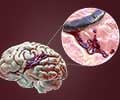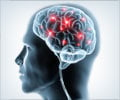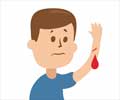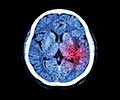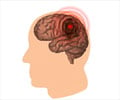Frequently Asked Questions
1. Which Doctor to visit if I have brain hemorrhage?If you suspect you have a brain hemorrhage or experience symptoms such as severe headache, confusion, weakness, or difficulty speaking, seek immediate medical attention. A neurologist or neurosurgeon specializes in diagnosing and treating brain hemorrhages and related conditions.
2. What are the warning signs of a stroke?
Warning signs of a stroke include sudden weakness or numbness, particularly on one side of the body, difficulty speaking or understanding speech, sudden severe headache, dizziness, and loss of balance or coordination. If you suspect someone is having a stroke, remember to act FAST: Face drooping, Arm weakness, Speech difficulty, Time to call emergency services.
3. What are the main risk factors for brain hemorrhage?
The main risk factors for brain hemorrhage include hypertension (high blood pressure), arteriovenous malformations (abnormal connections between arteries and veins in the brain), aneurysms (weakness in blood vessel walls), head trauma, bleeding disorders, and illicit drug use.
4. How is a stroke diagnosed?
A stroke is typically diagnosed through a combination of physical examination, imaging tests such as CT scans or MRI scans, and neurological assessments. These tests help determine the type of stroke (ischemic or hemorrhagic) and the location and extent of brain damage.
5. What is the difference between an ischemic stroke and a hemorrhagic stroke?
Ischemic strokes occur when a blood clot blocks an artery supplying blood to the brain, leading to a lack of oxygen and nutrients to brain cells. Hemorrhagic strokes, on the other hand, occur when a blood vessel in the brain ruptures or leaks, causing bleeding into the brain tissue or the surrounding areas.
6. What are the treatment options for brain hemorrhage and stroke?
Treatment for brain hemorrhage and stroke depends on the type, severity, and underlying cause. For brain hemorrhage, treatment may involve medications to control blood pressure, surgical intervention to remove the clot or repair the damaged blood vessel, and supportive care to minimize brain damage. Ischemic strokes may be treated with clot-busting medications, mechanical interventions such as thrombectomy, and blood thinners in certain cases.



